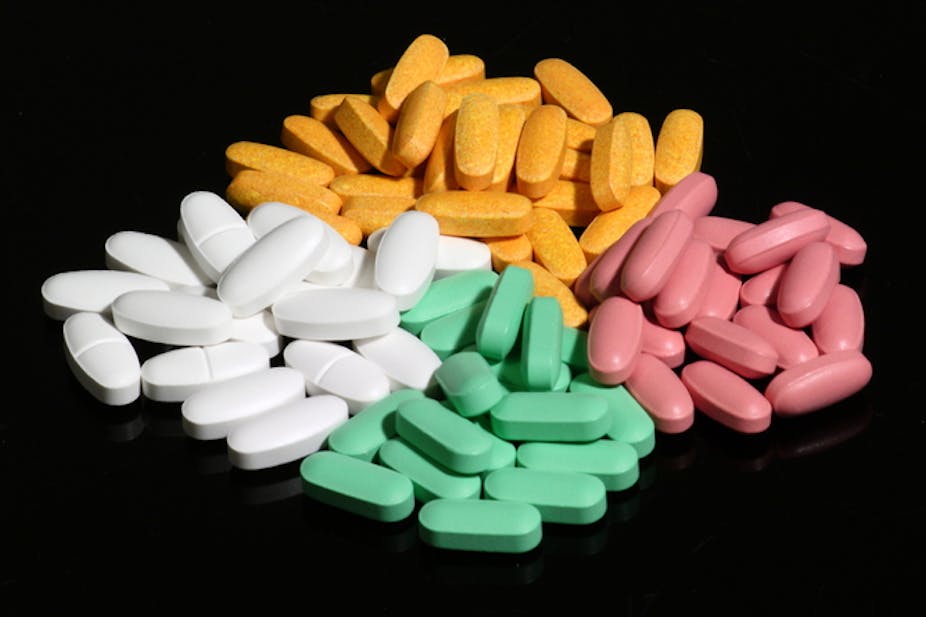Clinical trials go on all the time, but they are generally little thought of by the public. That’s until something goes wrong, as happened so dramatically in Rennes, France, where a trial volunteer has died and five others have been hospitalized.
Unlike other countries in the European Union, there had been no major accidents during drug trials until this point. In the UK, a trial by drug company TeGenero Immuno Therapeutics in 2006 saw six trial participants hospitalised for organ failure.
In France, the regulatory framework for trials is taken very seriously by the different organisations associated with this research. It clarifies who can participate in a clinical study and what the stages are for clinical research applied to a drug.
Any biomedical research involves three partners whose roles and responsibilities are defined by law: the sponsor, the investigator and the participant (a patient or a healthy volunteer).
The sponsor
The sponsor is the person who takes the initiative to research the drug and ensure its successful implementation. The first step is writing a research protocol and choosing which medical teams will be able to apply this, as well as purchasing insurance to protect research participants.
The sponsor must then submit the research protocol to the competent authority, the French Agency for the Safety of Health Products (MSNA), and get ethics approval from the Committee for the Protection of People (CPC).
Once the green light given by the MSNA, the developer ensures follow-up of this research (or “monitoring”), collecting all relevant data from scheduled events but also any unexpected events which must also be reported to the agency (which can pass on them on to the CPP).
All data is recorded in notebooks, with observations specific to each research participant by trained personnel. These observations are controlled by external auditors. Finally the proponent must archive all data and possibly biological samples collected during the research.
The investigator
The investigator is a qualified individual (usually a registered doctor with appropriate experience in clinical research) who can initiate a trial by writing the protocol research. In all cases (whether the study is initiated by a sponsor or by an investigator), it is the investigator who implements the study.
The investigator must ensure that research will take place at appropriate sites, with a team fully informed of the research protocols. The investigator is also responsible for the information given to research participants, drafting information sheets and consent forms. The investigator must inform the sponsor of any adverse events that occurring during the research.
Participants
The research participant must be registered on the French social security system, and may be healthy or sick. All participants must be able to provide “free and informed” consent. There are categories of so-called vulnerable participants including minors, adults under guardianship or deprived of freedom, and people in comas. In these situations, consent may be collected from a trusted third party.
The consent form will be signed once the participant has had time to reflect on the trial. It is important to stress that the research participant is free to terminate their participation in the study at any time without having to justify their reasons and without consequences for their relationship with the healthcare team. They can request the destruction of their data and biological samples.
All healthy volunteers must be registered by the investigator with the organisation, Volunteers for Biomedical Research to prevent them from participating in multiple studies at the same time. Healthy volunteers receive a participation allowance and reimbursement of any costs related to their participation, but sick patients do not.

The stages of drug development
To be [authorised for use in France](http://ansm.sante.fr/Activites/Autorisations-de-Mise-sur-le-Marche-AMM/L-AMM-et-le-parcours-du-medicament/(offset), a drug must undergo several stages of approval:
• Phase I: The first phase generally serves not to test the drug’s effectiveness, but to assess tolerance, its effect on the human metabolism, how the drug moves through the body, its dosage and side effects. Phase I is usually performed on healthy volunteers (there is a phase called I/II, in which healthy people cannot participate, for example in the case of chemotherapy drugs). Low doses of the drug are administered initially and then gradually increased to determine the maximum tolerated dose. These Phase I studies are carried out at research locations approved by the relevant authority, which must be equipped to deal with any unexpected health problems that could endanger the physical or mental integrity of the participant. It was during a Phase I test phase that Rennes accident occurred.
• Phase II: this covers a limited number of participants to study the effectiveness of the new drug, its dosage and its physiological effects.
• Phase III: this phase covers a larger number of patients and evaluates the effectiveness of a new treatment compared to a standard treatment or placebo.
After these three phases an authorisation application may be filed and the drug can be authorised and administered.
• Phase IV: The final phase is used to test the drug on an even larger population or in a specific subgroup. It aims to better understand the conditions of use, and to detect rare side effects (which is called pharmaco-vigilance).


